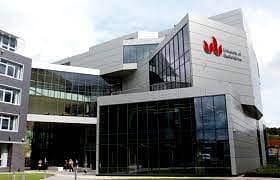The course covers a range of topics from advanced programming, design patterns and data modelling to popular development platforms, open source frameworks and cloud computing will be explored to open up your career.
The aims of the course are to provide you with a critical understanding of Software Engineering Techniques such as advanced programming, design patterns and databases.
You will be able to follow significant trends in system development, including software development, version control with GitHub, open source frameworks such as OpenCV and Tensorflow along with web services and cloud computing.
You will have developed your problem solving skills with respect to software engineering and develop your analytical and evaluative skills with respect to information technology.
Why choose this course?
The MSc in Software Engineering and Applications with Placement course is about building professional software developers and helping them to create applications of latest emerging technologies. It is an ideal course for Computer Science graduates and experienced programmers who want to solve real-world problems, evaluating advanced software engineering environments, and built up complex software applications based on emerging technology with improved readability, testability, and extensibility. A range of topics from advanced programming to popular development platforms, open source frameworks, Big Data ecosystem and Cloud Computing will be explored to fulfil the goal and to open up your career opportunities.
Unit Information - What will I learn?
Units
- Applied Software Development Techniques And Applications Of Open Source Frameworks (CIS129-6) Compulsory
- Distributed And Parallel Computing Technologies (CIS110-6) Compulsory
- Msc Project Software Engineering And Applications (CIS130-6) Compulsory
- Research Methodologies And Project Management (CIS120-6) Compulsory
- Software Design Patterns And Data Architectures (CIS128-6) Compulsory
How will I be assessed?
The assessment strategy used is a balance of coursework, group and individual reports, portfolios, presentations or exams. Presentations are usually given and assessed in the context of a group seminar.
You will also produce artefacts in the area of your specialism. The method used for the assessments will depend on the nature of the subject being taught in the unit, and the most appropriate method has been chosen.
Constant feedback and advice from a supervisory or unit team will be provided to support you in your work, so that you can gain an insight into whether your work is meeting the necessary targets.


